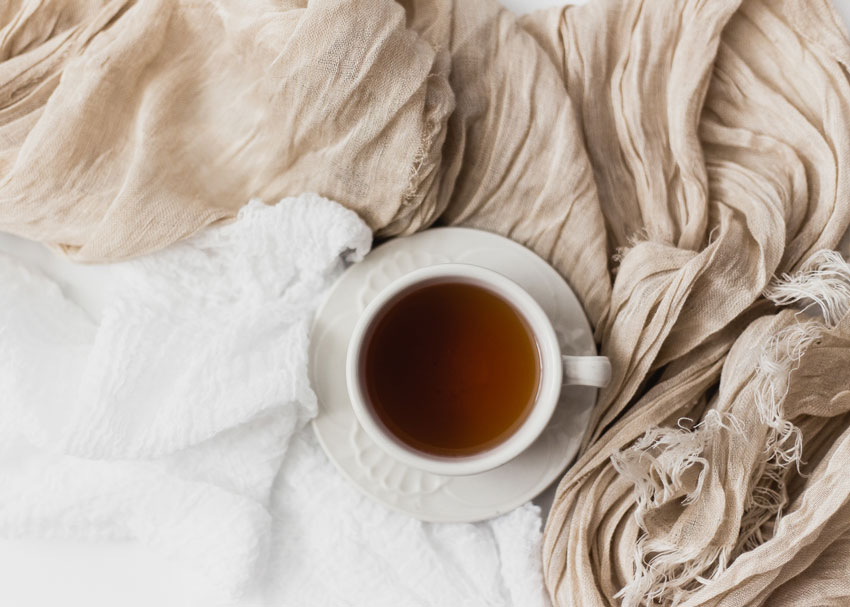Best Tea that Helps You Sleep
Don’t you love the feeling drifting naturally off to sleep from a long day of physical exercise that leaves you genuinely exhausted? Growing up, I would attend an outdoor activities camp every summer that would jam-pack every second of the day with hiking, biking, swimming, and water-skiing. I remember being so physically drained at the end of every day that I would sometimes accidentally fall asleep with my shoes on. For most people, falling asleep as children after long days at school or camp is not an issue, but as we get older some people find the task of falling asleep to be increasingly difficult.
Given the hustle and bustle of everyday work, commuting from point A to B, and the constant stimulation and we experience with social media and attending to our texts, it’s no wonder that these distractions can often creep their way into our natural sleep cycles. Our circadian rhythms become so out of whack – between business trips and staying up late to catch that extra episode of our favorite show that when we actually try to lie down at night and go to sleep, our minds are still too preoccupied to allow for sleep to set in.
So what’s the alternative? How can we find sustainable ways to unwind at the end of the evening and allow our minds and bodies to relax? Well, for some people with severe sleep disorders like insomnia that starts to impede on one’s ability to perform normal daily tasks, a doctor might prescribe a pharmaceutical medication to treat those conditions. However, many of these options come with a number of unwanted side effects such as morning grogginess that can be distracting and unpleasant. Additionally, if the issue resides primarily in the act of falling asleep rather than staying asleep, there are a number of natural remedies that are commonly found to be highly effective in ushering in a gentle sleep without the unwanted side effects many pharmaceuticals carry.

Why Choose a Natural Tea that Helps You Sleep?
Among the thousands of natural supplements, pills, and extracts out there that are used for sleep, there are far fewer pleasures in life compared to curling up in bed with a hot cup of herbal tea. Especially when paired with a book, this act is special in the sense that you must allow yourself time to consume the tea, compared to swallowing a pill or dosing yourself with a tincture. The only thing to note when consuming an herbal tea for sleep before bedtime is to refrain from drinking too much to avoid having to wake up and use the restroom multiple times throughout the evening.
That being said, find a good book, boil some water, and enjoy some of these natural herbal teas that help you sleep.

1. Chamomile
This herbal tea is a classic when it comes to bedtime natural tonics, and many people even enjoy it without any honey due to its naturally sweet taste. The herb is extracted from the flowers of the plant (which is a member of the Asteraceae plant family), and it is loaded with nutrients and antioxidants that may potentially reduce the risk of certain illnesses like cancer and heart disease. According to research, the actual chemical mechanism chamomile contains that is responsible for inducing sleep is called apigenin. This antioxidant binds to chemical receptors in the brain that helps to promote sleepiness. One study even concluded that chamomile can provide modest clinical benefit to patients with chronic primary insomnia.

2. Valerian Root Tea
For most herbal novices, Valerian Root is probably a lesser-recognized herb compared to chamomile, although it is generally regarded as a stronger alternative. In fact, it is often referred to as “nature’s valium” due to its powerful sedative effects. The herb itself is a perennial flowering plant that is native to parts of Asia and Europe, and while the flowers are pleasantly scented, the root has a stronger, earthier smell. What’s fascinating about valerian root is that it has a similar effect on the brain (chemically speaking) to prescription medications like Valium and Xanax. This is because research has shown that Valerenic Acid (found in valerian root) prevents the breakdown of GABA in the brain. Since low GABA levels (which is a neurotransmitter) is associated with low-quality sleep, valerian root stops the natural breakdown of GABA in the brain, causing more to circulate throughout the brain.
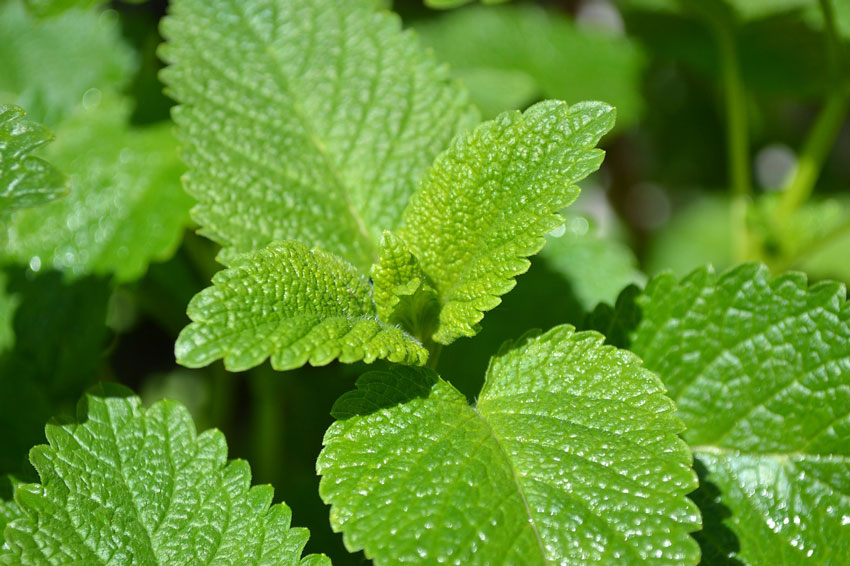
3. Lemon Balm Tea
Most people who are already familiar with herbal teas often find that teas for sleep contain both lemon balm and chamomile. The two herbs not only blend pleasantly together to produce a taste that rarely needs artificial sweetening, but they also both help to induce sleep and relaxation in similar ways. Lemon balm is another perennial herb commonly found in the Mediterranean basin, parts of Europe, and parts of Asia, and provides benefits ranging from boosted cognitive performance to relieving indigestion. The reason the herb is called lemon balm is due to its natural citrus scent and taste. One study found that when lemon balm was combined with valerian to help relieve restlessness in children, the participants experienced a 70-80 percent improvement in ability to fall and stay asleep.

4. St. John’s Wort Tea
If Valerian Root is nature’s all-natural valium, St. John’s Wort is the all-natural antidepressant. It has been used for years as an effective (and safer) alternative to prescription drugs such as Prozac, and holds a myriad of other powerful benefits such as healing wounds, aiding as a dietary supplement, and helping to induce sleep. The extract comes from a perennial herb that is native to temperate parts of Asia and Europe, and can be taken in pill form or steeped into tea. According to Insomnia.net, St. John’s Wort functions as a natural sleep aid by stimulating the brain’s GABA receptors, allowing for more of the neurotransmitter to be used (which is linked to better quality sleep). According to the National Center for Complementary and Integrative health (NIH), it is found to be an ideal treatment for both depression and sleep disorders for many, helping to reduce sleep disturbance and agitation.

5. Lavender Tea
Not only does lavender give off a naturally relaxing aroma, but it is used by many worldwide as a soothing and stress-reducing tea. This bright purpose flowering plant is native to parts of northern Africa and regions of the Mediterranean, and offers benefits that span far beyond just relieving anxiety and inducing sleep. In fact, one study revealed that lavender can help reduce fatigue during waking hours, helping one to be more energized and focused. Other benefits range from helping to treat fungal infections, hair loss, and even accelerated wound healing. With regard to sleep, research reveals that lavender tea is effective in improving sleep quality for people with anxiety disorders, supporting the evidence that this nice-smelling herb can help make it easier for the body and mind to relax, unwind, and rest.
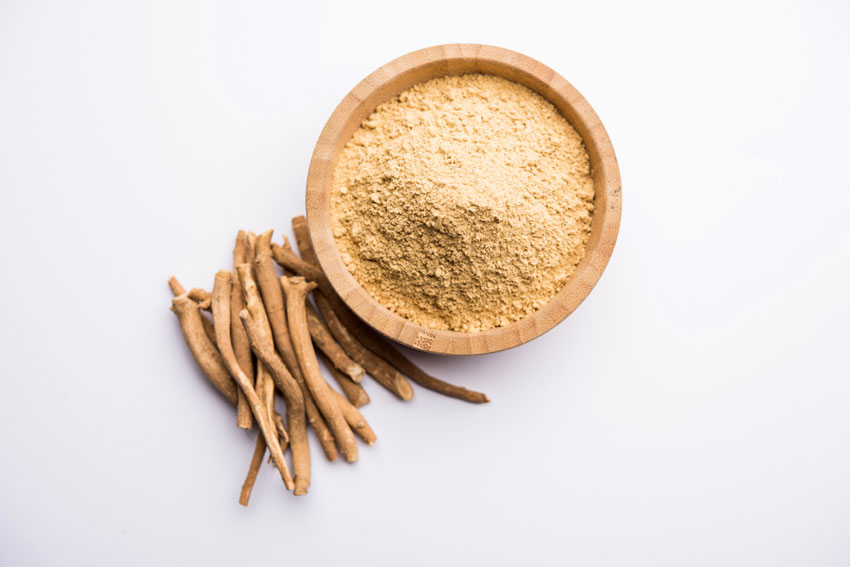
6. Ashwagandha Tea
This herb is a little different from the ones mentioned above in the sense that it most often comes as a powder that must be mixed into hot water. It has been used for thousands of years in Ayurvedic medicine – one of the world’s oldest holistic healing systems. It is one of the most powerful and beneficial herbs out there, providing an impressive number of benefits that have been studied and backed by scientific research. The actual plant is native to parts of north Africa and India, while extract from the plant’s roots are typically made into a powder that can be mixed into hot water to make tea. Ashwagandha has been studied for benefits ranging from reducing cortisol levels and providing anti-cancer properties, to reducing blood sugar levels and alleviating stress. Since it is classified as an “adaptogen,” it chemically helps the body adapt to stressful situations. Research has shown that ashwagandha can help to promote the activity of GABA in the brain, leading to higher quality sleep states.
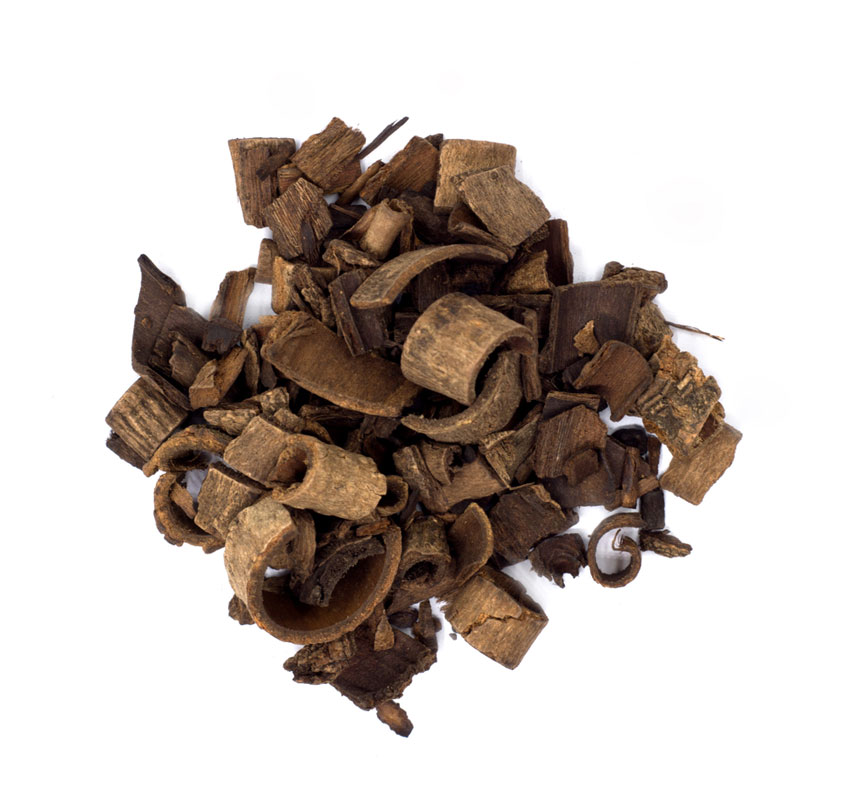
7. Magnolia Bark
This sleep remedy is another that is relatively unknown compared to bigger names like chamomile and valerian root. And yes, this sleep aid is taken from the bark of the Magnolia tree, a native Chinese plant that has been harvested for its bark for thousands of years in many traditional Asian medicinal systems. Nowadays, the bark can be found in products ranging from topical oils and creams, to toothpaste you can find in the at-home teeth whitening kits and tea. Similar to valerian root, magnolia bark contains a compound that is known to effect the GABA receptors in the brain. This natural chemical is called honokiol, and research has shown that this substance can help the brain drop into deeper sleep states faster, suggesting potential application for the treatment of insomnia.
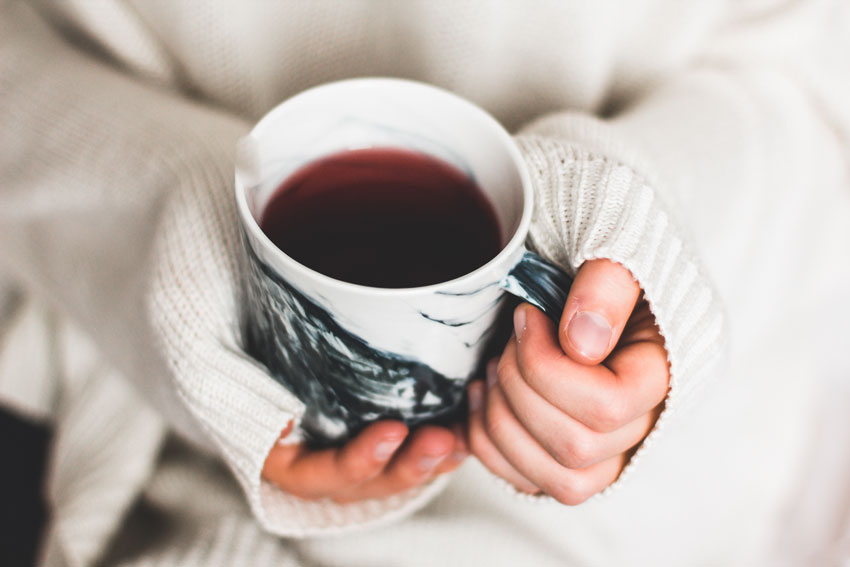
Are Herbal Teas for Sleep Right for You?
While in comparison to pharmaceutical alternatives for sleep these herbs are far safer, it is still important to talk to your doctor if you are already taking medication and want to try an herbal tea. It is important to be mindful that some of these herbs can interact with medications you are already taking, so be sure to check for any possible harmful interactions at RXList before trying one of these remedies for yourself.

